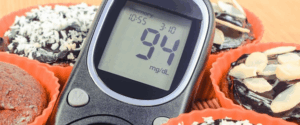Hypoglycemia, or low blood sugar, is a condition that affects many people, especially those with diabetes. It’s important to recognize the early signs of hypoglycemia as it can lead to serious health problems if not addressed promptly. Early detection is key to preventing dangerous complications. By understanding the warning signs, individuals can take action to manage their blood sugar levels effectively. This knowledge is particularly crucial for diabetic patients, who must regularly monitor their glucose levels to avoid these potential issues. Learning about the symptoms can help safeguard one’s health and improve overall quality of life.
Understanding Hypoglycemia
Hypoglycemia occurs when blood sugar levels drop below normal, often affecting those with diabetes. Blood sugar is the body’s main energy source, and having too little can impact daily activities and overall health. When the body’s sugar levels are too low, it can cause confusion, irritability, and even pass out from lack of energy. Recognizing how low sugar levels affect your routine is crucial. Knowing what causes these symptoms means you can act quickly to prevent them from worsening. Maintaining stable blood sugar is vital for people with diabetes to stay healthy and capable of managing their lives effectively.
Recognizing the 10 Warning Signs
Here are some common signs of hypoglycemia:
- Excessive Sweating: Sudden sweating can indicate falling blood sugar levels. If you start sweating more than usual, it might be a sign to check your sugar levels.
- Shakiness: Feeling shaky can be a clear symptom. It’s your body’s way of telling you that it needs more glucose.
- Rapid Heartbeat: A fast pulse might mean that your blood sugar is too low. Your heart beats quicker to pump more energy, signaling you to take action.
- Mood Changes: If you’re suddenly irritable or upset, your blood sugar might be the culprit. Keep an eye on your mood swings.
- Headaches: Frequent headaches can indicate a problem with your sugar levels. If you get headaches along with other symptoms, it could be hypoglycemia.
- Hunger: Intense hunger, especially if it comes on suddenly, is a common sign. Your body is telling you it needs more sugar.
- Dizziness: Feeling lightheaded or dizzy may mean your blood sugar is dropping. It’s a sign you might need to eat or drink something sweet.
- Fatigue: Constant tiredness could point to low blood sugar. If you’re often sleepy without reason, checking your sugar levels is wise.
- Blurred Vision: If things look fuzzy, your sugar might be low. Keeping tabs on how your vision changes can help.
- Confusion or Drowsiness: Losing focus or feeling sleepy might mean your sugar is too low. It’s crucial to react quickly to prevent worse symptoms.
Understanding these signs can help you catch hypoglycemia early. Knowing when your body is telling you something is off is key to managing your health well.
Severe Symptoms and Potential Complications
If mild symptoms of hypoglycemia are left untreated, they can escalate into severe complications. Severe cases can cause seizures or even lead to a coma. Recognizing early signs is crucial to prevent these hazardous outcomes. Taking prompt action to address low blood sugar levels can help avert such dangerous situations. It’s important to know that if symptoms worsen or don’t improve quickly, seeking medical attention is essential. The risks associated with severe hypoglycemia highlight the importance of managing blood sugar levels vigilantly.
Overcoming Hypoglycemia Unawareness
Some people don’t recognize the typical signs of hypoglycemia. This lack of awareness can put them at more risk because they won’t sense the changes until it’s too late. Factors like frequent low sugar episodes or certain medications can contribute to this issue. If you’re at risk, being more mindful of your health and checking your sugar regularly is essential. Keeping track of your health, especially if diabetes is a factor, can help reduce the risks associated with hypoglycemia unawareness.
Preventive Measures and Effective Management
To manage hypoglycemia, it’s important to make some lifestyle changes. Consider these tips: – Dietary Adjustments: Explore Indian cuisines, which offer a variety of healthy options. Incorporate balanced meals to help maintain steady sugar levels. – Regular Exercise: Balance exercise with your food intake to keep your sugars stable. – Medication Management: Ensure your diabetes medications are well-coordinated with your meals and activities.
Creating a routine that includes balanced meals and regular physical activity can effectively manage blood sugar levels and prevent hypoglycemia.
Handling Immediate Hypoglycemic Episodes
If you have hypoglycemia, acting quickly is key. Here’s a quick guide: – Consume Fast-Acting Carbs: Eat or drink something sugary, like fruit juice or glucose tablets. – Follow Up with a Snack: Once your sugar levels improve, have a snack to maintain them.
Knowing how to handle low sugar levels helps in managing hypoglycemia effectively.
Conclusion
Being aware of hypoglycemia’s warning signs is crucial to stay healthy. Regular monitoring and understanding early symptoms can help individuals manage their condition proactively. This vigilance helps prevent adverse effects and enhances life quality. By adopting preventive measures and maintaining a routine, individuals can manage blood sugar levels effectively, reducing the risks associated with hypoglycemia. Taking control of one’s health through education and action can lead to better outcomes and a healthier life overall.

